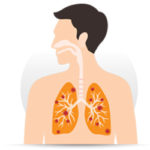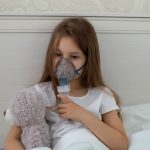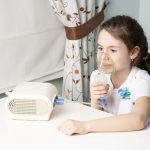Respiratory
High Prevalence of Respiratory Symptoms after COVID-19 is Associated with Disease Severity Markers
According to a latest study published in the ‘Nature Journal of Scientific Reports’, higher prevalence of respiratory symptoms, impaired diffusion capacity of lungs and persistent chest computerized tomography (CT) findings after 3 months of hospital admission for COVID-19, were associated with high viral load, low antibody levels, and high levels of matrix metalloproteinase (MMP)-9 during admission.
This study was a multicentric, randomized, open-labelled clinical trial which collected data from 108 hospitalized COVID-19 patients along with a 3-month follow-up, to evaluate associations between clinical characteristics during hospital admission and respiratory outcomes after 3 months of hospitalization.
The key results were as follows:
- High antibody levels at baseline showed a positive effect on pulmonary function.
- Low levels of IgG antibodies to SARS-CoV-2 seemed to predict reduced diffusion capacity of lungs at 3 months.
- High plasma levels of MMP-9, both during hospital stay and 3 months after hospitalisation, were associated with signs of both reversible and irreversible changes on chest CT.
In conclusion, the results of the study suggested that baseline clinical characteristics of COVID-19 at the time of hospital admission can predict pulmonary outcomes in later stages following hospitalization for COVID-19.
Lerum, T.V., Maltzahn, N.N., Aukrust, P. et al. Persistent pulmonary pathology after COVID-19 is associated with high viral load, weak antibody response, and high levels of matrix metalloproteinase-9. Sci Rep 11, 23205 (2021). https://www.nature.com/articles/s41598-021-02547-x Accessed on 9 December, 2021.

Short-Term Exposure to Secondhand Smoke Has Significant Effects on Asthmatic Patients
Read More

Patients Admitted for Asthma Exacerbations are Predominantly Obese and Have Poor Asthma Control at Baseline
Read More

Initiation of Mepolizumab in Severe Eosinophilic Asthma Reduces Usage of Oral and Inhaled Corticosteroids
Read More

Are Specific Types of Bacteria Related To Acute Exacerbations in Children with Asthma?
Read More

Increased Patient Awareness of Chronic Obstructive Pulmonary Disease is Associated with Increased Adherence to Treatment
Read More

Hypertensive Disorders in Pregnancy Increase the Risk of Asthma in Offspring
Read More

Yoga Has Significant Positive Effects on Asthma Control in Children
Read More

Understanding the Differences of Clinical Outcomes Between Elderly and Adult Patients with Allergic Rhinitis
Read More

Can Montelukast Sodium Combined with Budesonide Aerosol Improve Airway Function in Asthmatic Children?
Read More

Treatment-Seeking Behavior of Young Hypertensives in India: An Analysis of NFHS-4
Read More

The IISc Finds A Novel Inhibitory Action of Montelukast Against the SARS-CoV-2 Virus
Read More

Risk Factors Accelerating Time-to-Diagnosis of COPD among Asthma Patients
Read More

As-needed Vs Maintenance Regimens in Mild Asthma – Patient Perspectives
Read More

Can Digital Mindfulness-based Interventions Improve Asthma-related QoL?
Read More

What are the Different Risk Factors Associated with Persistent Chronic Cough?
Read More

Procalcitonin, C-Reactive Protein and White Blood Cell Levels Help to Differentiate Acute Bacterial or No-Bacterial Infections in Children
Read More

Severe Asthma/Asthma Exacerbations Before Pregnancy Can Increase Rate of Exacerbations During Pregnancy
Read More

Exercise Rehabilitation Has Positive Effects on Children with Bronchial Asthma
Read More

Inhaled Corticosteroids Can Be Used as a Measure of Adherence in Severe Asthma
Read More

Recurrent Lower Respiratory Tract Infections Are Associated With Earlier Diagnosis of Pediatric Asthma
Read More

Ciclesonide Effectively Improves Asthma Symptoms in Children
Read More

High Intensity Interval Training and Sprint Interval Training is Effective for Asthma Patients
Read More

Small-Airways Targeted Treatment with Smart Nebulizer Technology Reduces Asthma Exacerbations in Children
Read More

Low serum IgA levels in asthmatic patients with recurrent chest infections
Read More

Inhaler training can improve patients’ peak inhalation flow rate
Read More

Maternal Asthma Severity Associated With Higher Chance Of Adverse Perinatal Outcomes
Read More

The Effects of Smoking on Atopic and Non-Atopic Asthma Differ With Gender
Read More

Cardiorespiratory Endurance and Muscular Strength Are Not Reduced In Individuals with Asthma
Read More

Higher Intake of Preformed Vitamin A In Mid-Childhood Lowers Risk of Incident Asthma
Read More
